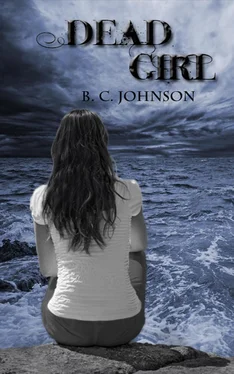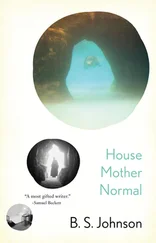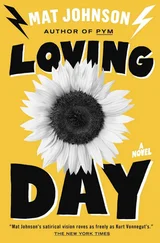“Ready?” she asked.
“I doubt it.”
She cleared her throat and began to read.
Chapter Sixteen
Puck, Revisited
Robin Woodrow Goodman, born in Year-of-Our Lord Eighteen-Eighty-Four, came screaming to life in the back room of a saloon. His mother, Adeline Emelda Goodman, owned the establishment and hadn’t spent a day of her pregnancy in rest. When the time came, little Adeline, who had never tasted the air above Five-Feet-One-inch, put down her bar rag, blew out a long sigh, and motioned for Jamison Curdly, the piano player, to come over to the bar.
She whispered a few words in his ear, turned, and walked calmly into the saloon’s back room. Jamison Curdly swept off his hat, wiped his forehead, and called Doctor William Darwin over to the sideboard. Now, Doctor William Darwin was no doctor, but that wasn’t a secret. And he had no relation to the famed Evolutionary, I assure you. In fact, the only thing he did own was a mortuary and a quick tongue.
When Jamison Curdly whispered in his ear, Dr. William Darwin laughed and slapped his leg. Jamison shook his head. The Doctor explained that he wasn’t a doctor. Jamison said he wasn’t one either. They shook hands and went into the back room.
The procedure was messy, but successful. Luckily Adeline had done her share of research on the topic, and directed her two would-be pioneer gynecologists through every grisly step. She survived the encounter, against all the laws of God, Man, and Irony. Three powerful figures, with the last reigning over the first two. Then again, a baby and his mother dying in a messy birth didn’t even touch spheres with Irony. That was of Reality, an ugly Force of Nature that ought to be done away with.
And so I tried to live like I was born—foolishly, bravely, and with a hint of the absurd. It did me well, and to be sure, there are many worse ways to live.
I was raised in Arizona, the town of Strawberry, the son of a widowed bar owner. My mother, aforementioned Little Adeline, had owned the place ever since my father, her sweet Benny, died of illness. That illness being lead-poisoning—he’d been accidentally shot by a drunk with a penchant for waving his gun around. An ignoble death, indeed.
As I aged, I had two obsessions. One of them was my mother—I spent more time at the bar than any child had the right to claim. Strike that—than any adult even had the right to claim. This changed when I was of age to go to school, and even then I returned swiftly and with excitement to my mother’s side. Not the most healthy relationship, perhaps, but she was my everything, and she doted on me.
I played cards with the more trustworthy customers, decided by Mother, of course. I learned Poker and Faro and Black Jack before I knew how to read. Another lesson also found its way to me, at a much quicker pace than the most of man—I learned the effects of alcohol–sheer observation, of course–in all of its gory details. I watched more than a few men drinking themselves into death, and I witnessed the discharging of more bodily fluids than most doctors could credit. To wit, I have never been, nor will I ever be, I imagine, much of a drinker. The smell of a good whiskey, or hell, even a bad one, conjures pleasant memories, but the taste is not for me.
Dear Mother taught me many of the lessons I carry with me, in fact.
“Never match wits with wit of no match.”
Or…
“See a penny, pick it up. Money is its own reward.”
And…
“The percentage of Vermouth in a man’s martini is inversely proportional to his character.”
All truisms’ I have taken to heart.
I looked up at Ophelia and shook my head.
“This is fascinating,” I said, and I truly meant it. “And Puck is infuriatingly mysterious. But I have to know where this applies to me.”
I hadn’t forgotten Puck and Morgan and Zack, hiding in a train station, no doubt surrounded by a dozen of the dragging, moaning horrors that had chased us down the highway back in the Grey Meadows. The wraiths, I think Puck had called them. And I couldn’t forget Morgan and Zack in this world, sitting in hospital beds being doped by a monster whose sole purpose was to kill me. Re-kill me.
And while any other time, on any other day, I would have lost a finger to learn Puck’s story, I had to know something more—how could I stop Abraham? Puck told me I wouldn’t need to, that I wasn’t ready. I disagreed on both counts.
Ophelia raised an eyebrow and plucked her glasses from their delicate perch on her nose. She closed her eyes and rubbed the bridge of her nose before replacing the glasses.
“Okay,” she said, and glanced back down at the book.
“That’s it?” I asked.
“You want to know about his Mors, right? The thing that came for him?”
That’s exactly what I wanted to know. Puck wasn’t being hunted like a dog in the streets by some glowing white freak—I knew for a fact he’d shook his personal Grim Reaper off years ago. And I had to know how.
“I want to know how he killed it,” I said.
“Killed her,” she corrected. “Ms. Isabelle Cartwright.”
I took a huge breath, not ready for the information I was about to hear. I had developed a sixth sense for bad news.
“The Mors are people. I think,” Ophelia said. “Or Grampa thinks they were, anyway. Still interested in murdering one?”
I rubbed my temples. I thought of the night in the parking lot, staring down five drooling rapists. Would I have killed, if I could? If I’d been holding a gun, would I have used it to save my life? It wasn’t a hard decision.
I would have killed them all.
“Just skip ahead,” I said. “Tell me about Isabelle.”
She shook her head, opened the old journal, and began flipping pages.
“No,” I said, and held my hand out. I took her gnarled fingers in mine, looking into her watery eyes. There wasn’t time for this. I could hear the tick-tock of some terrible clock, burning away the minutes of Zack and Morgan’s lives. “You’ve read the journal, right?”
Ophelia nodded. “I don’t know about this…I’ve seen Grampa…”
Her voice shrank, and she sounded more than a bit like a frightened little girl. I didn’t enjoy it nearly as much as I thought I would.
“I can do it without hurting you,” I said. “I think. Don’t think of anything but the journal. Nothing but that. Picture it, the part about Isabelle, about Puck and his Mors.”
Ophelia set her lips into a grim line. “Your friends are in danger?”
“Yes,” I said, my voice choked.
Ophelia closed her eyes. I picked her hand up, cradled it in mine, set my lips against her knuckles. And I breathed.
They weren’t images this time—I wasn’t taking a true memory. The flashes came as words, a memory of a memory, all at once. My vision went black, and I saw—
The year was Nineteen-Fifty-One, and I’d been officially dirt-napped for seven years. I do not know what took her so long—I have spoken with a few Phantoms in what I call the Grey Meadows, and all of them have told me that their Mors had begun hunting them almost from the moment of revivification. Hell, I’d even had the time to pull double duty as a teacher and student at Stanford, instructing Engineering by day and achieving my doctorate at night.
Something about being reduced to atoms by a thousand-ton explosion really kick-starts the old ambition, however dusty and tired it once was.
My mind reeled as I tried to pull myself out of the flow of Puck’s words, stolen from Ophelia—explosion? I felt my mind groping through Ophelia’s, and I saw it, Puck’s death—a locomotive by the docks. He was working on it, repairing it? A ship full of munitions, for the war…an accident. Fire and heat, swallowing up everyone nearby. I dived back into the memory, trying to sort through the borrowed images. I found Puck’s voice again, on the day he met his Mors, I think…
Читать дальше












